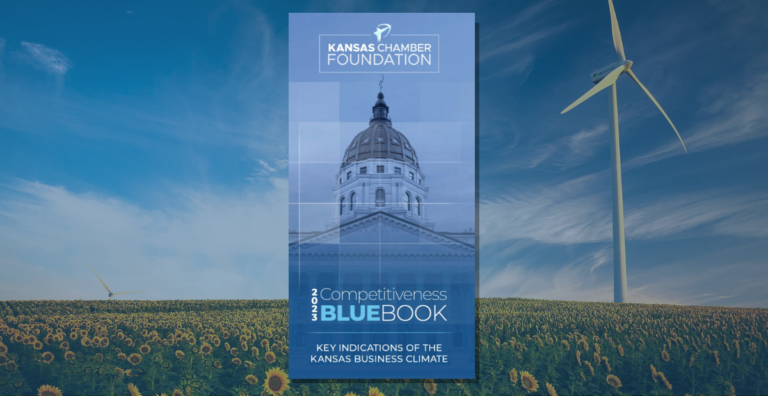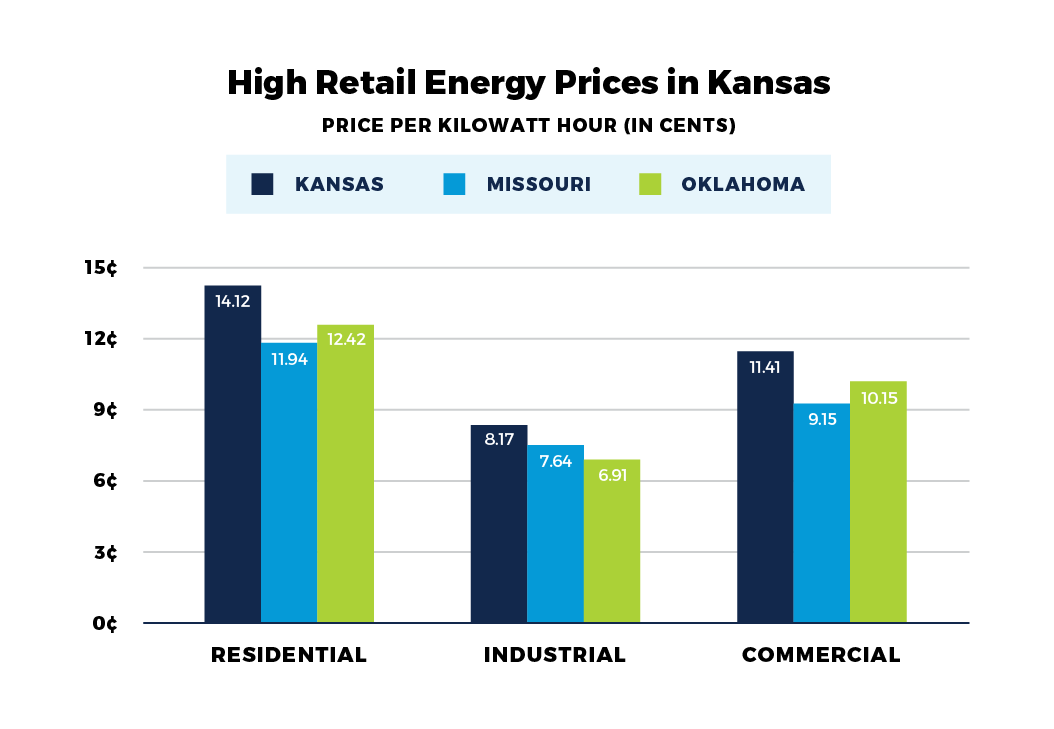The 2023 Kansas Competitiveness Blue Book compares data-driven information on the state’s economic health to the rest of the country on how it performs in a number of key indicators.
A project of the Kansas Chamber Education Foundation, Kansans are encouraged to use the Blue Book as a resource as we work together to remove barriers to our state’s business and economic success to increase prosperity for all Kansans.
This spotlight on how Kansas competes in Energy & Environmental is the fifth of a series of eight spotlights.
Spotlight on Energy & Environmental
Kansas continues to be the highest energy cost state in the region, making manufacturing and production of goods and materials more expensive. We must improve energy costs to be more competitive.

Kansas Is in the Lower Half of Energy-Generating States but a Standout in Renewables
Blue Book data point: Kansas ranks 31st in the nation for the overall generation of energy resources. Broken down by the energy sector, Kansas is 10th in the nation for renewables, 14th for coal, 20th for petroleum, 22nd for nuclear, and 43rd for gases.
Why it matters: Kansas is the largest producer of wind energy in the world. However, this low-cost source of energy has not resulted in overall energy savings for Kansas ratepayers.
Kansas Is in the Top Half of States for High Energy Prices
Blue Book data point: Industrial customers in Kansas pay energy prices that are 21st highest in the nation. Commercial customers pay the 23rd highest energy prices in the nation, and residential customers pay the 22nd highest prices nationally.
Why it matters: Neighboring states such as Oklahoma, Missouri, and Nebraska have lower energy costs, putting Kansas families and businesses at a disadvantage. Every extra dollar paid for energy is a dollar taken out of the economy elsewhere.
Kansas’ Gas Tax Is Lower than Many Others, But Not Key Neighbors
Blue Book data point: At 24.03 cents per gallon, taxes on gasoline in Kansas are 14th lowest in the nation.
Why it matters: Given the large geographic size of Kansas and the importance of gasoline to many key industries in the state, it is positive that only 13 states have lower gas taxes. However, those 13 states include neighboring states Missouri, Oklahoma, and Colorado, potentially draining dollars from the state when people cross borders to take advantage of lower taxes on gas purchases.
Takeaway
The Kansas Chamber’s 2022 Business Leaders Poll showed energy costs are the second highest concern for profitability, surpassed only by excessive business taxes. Regionally competitive energy costs are a critical unmet need for the Kansas business community. We must promote market-driven solutions to reduce energy costs.
Data Sources
1. U.S. Energy Information Administration
Click here to read more about how Kansas competes in the 2023 Blue Book.




